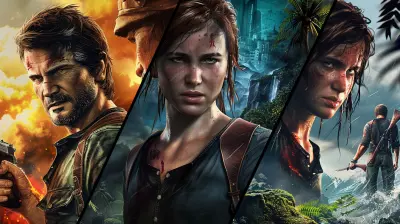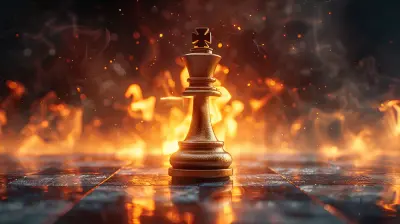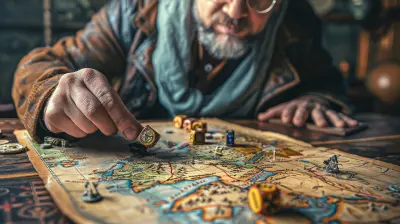Exploring the Social Impact of Tabletop Gaming Communities
4 May 2025
Tabletop gaming communities are thriving more than ever, and they’re not just about rolling dice, shuffling cards, or moving miniatures across a game board. They’re about connection—real, human connection in an increasingly digital world. These communities offer a safe and welcoming space for people from all walks of life to come together, flex their creativity, share a few laughs, and maybe even find a sense of belonging they've been searching for. But beyond the fun and games, there’s a deeper story to tell: how tabletop gaming communities are fostering profound social change.
So, let’s dive into it, shall we? Let me show you how those late-night Dungeons & Dragons sessions and weekend Magic: The Gathering tournaments are shaping lives, bridging divides, and building stronger communities, one game piece at a time.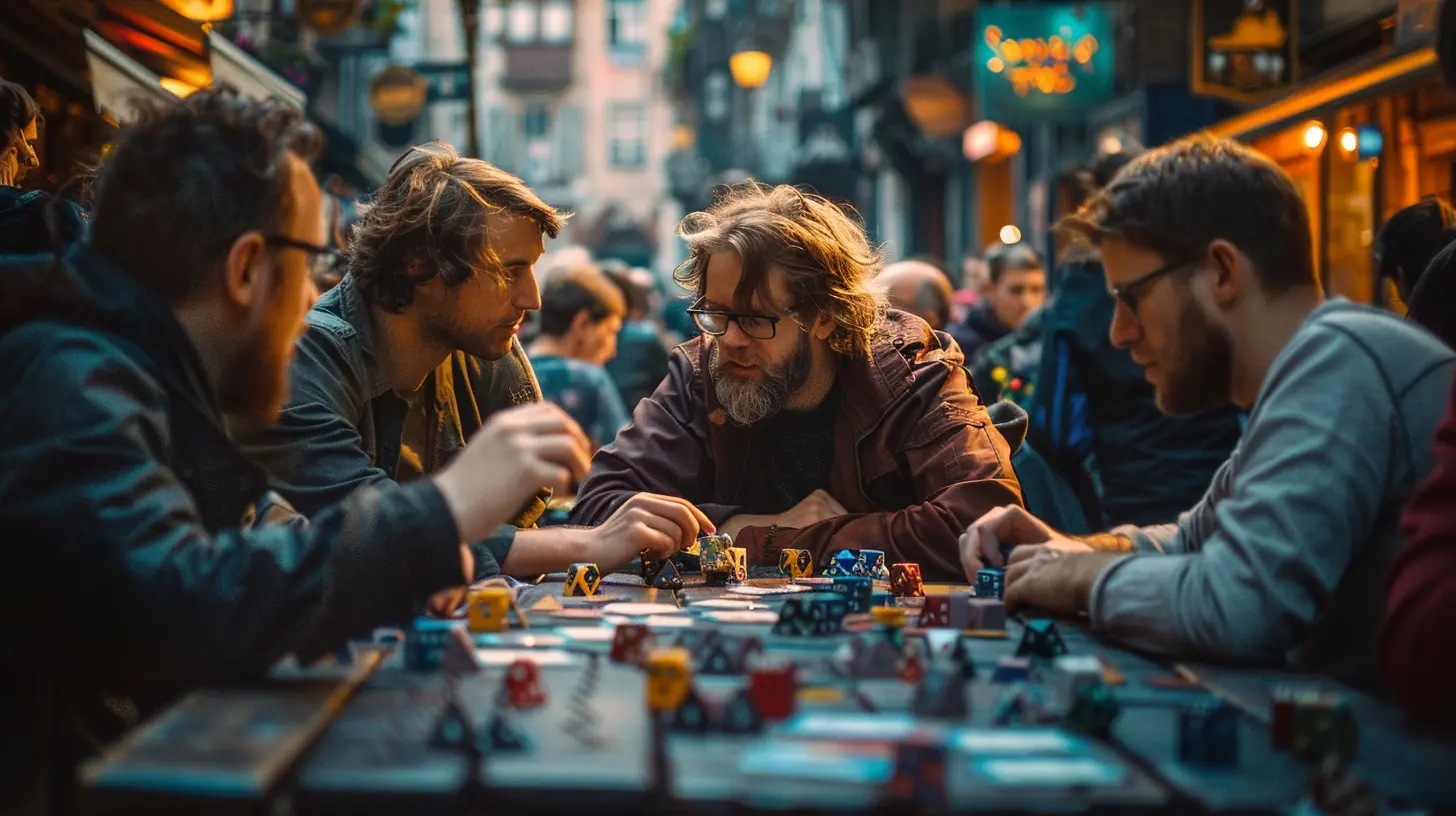
Tabletop Games: More Than Just a Hobby
When someone mentions tabletop gaming, you might picture a group of people sitting around a table covered in rulebooks, dice, and snacks. And yeah, that’s pretty accurate! But tabletop gaming is so much more than just a casual pastime. It’s a form of storytelling, a creative outlet, and, perhaps most importantly, a way to connect with others.Unlike a lot of modern entertainment, which tends to isolate us (think Netflix binging or scrolling endlessly on your phone), tabletop games are inherently social. They require people to interact, strategize, and communicate face-to-face. It's like magic; these games create tiny ecosystems where friendships can bloom, teamwork is essential, and everyone has a role to play, often literally.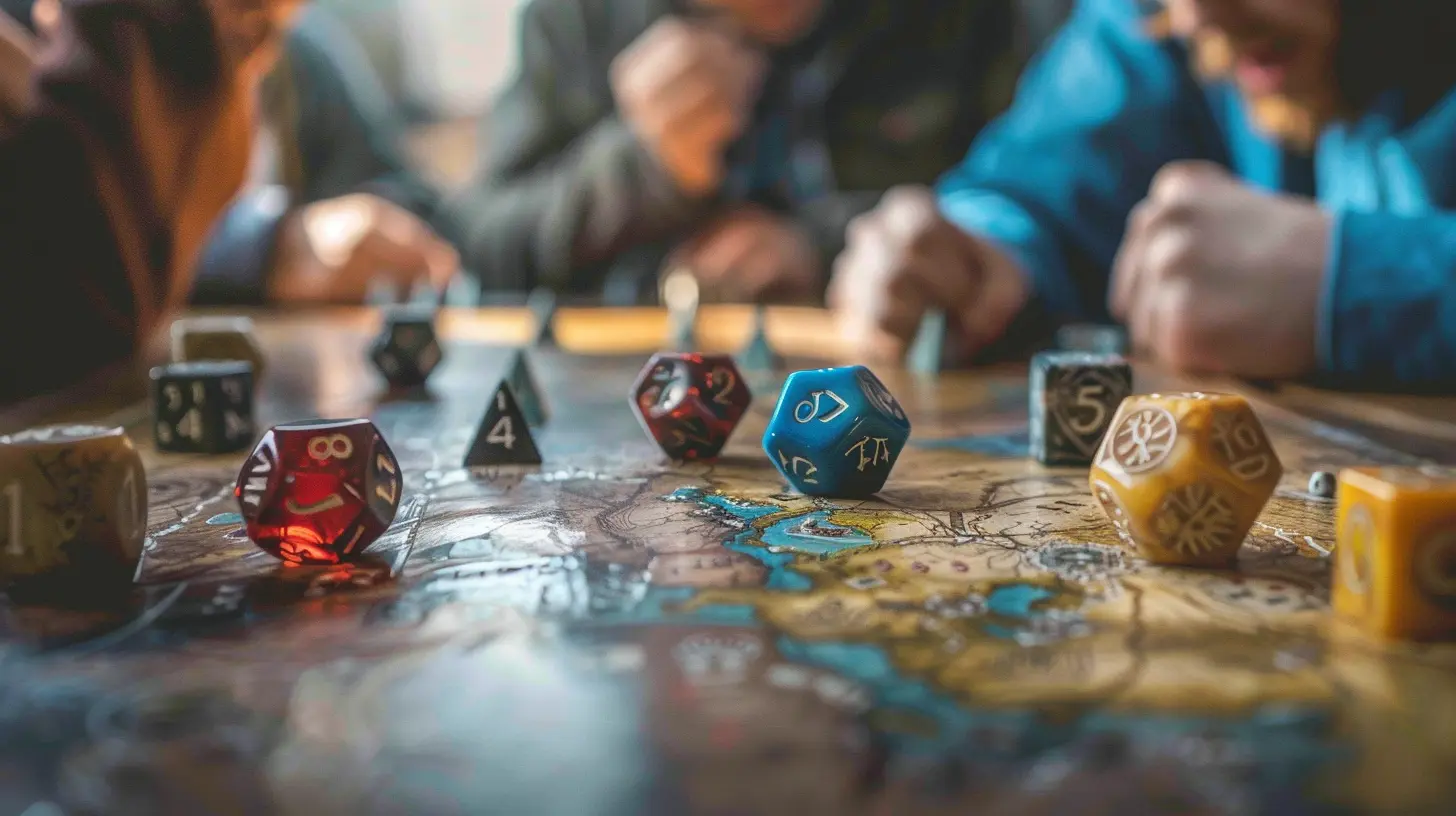
Building Bonds Through Shared Experiences
Imagine this: You’re locked in a dungeon with your party, facing down a fire-breathing dragon while your wizard is out of spell slots. Do you charge in headfirst or come up with a clever plan to outwit the beast? Now, zoom out for a second. That group of adventurers you’re strategizing with? They were strangers a few weeks ago, but now you’re a team.Tabletop gaming has this incredible way of breaking down barriers. Whether it's through cooperative gameplay, lighthearted competition, or shared moments of triumph and failure, these experiences forge real connections. It doesn’t matter if you’re shy, outgoing, 16, or 60—when you’re battling a common enemy or working together toward a goal, the usual social walls just melt away.
And let’s be real, there’s something deeply bonding about arguing over whose turn it is to buy pizza when your D&D campaign stretches way past midnight. Those shared experiences? They’re the glue that holds gaming groups together and the foundation of lasting friendships.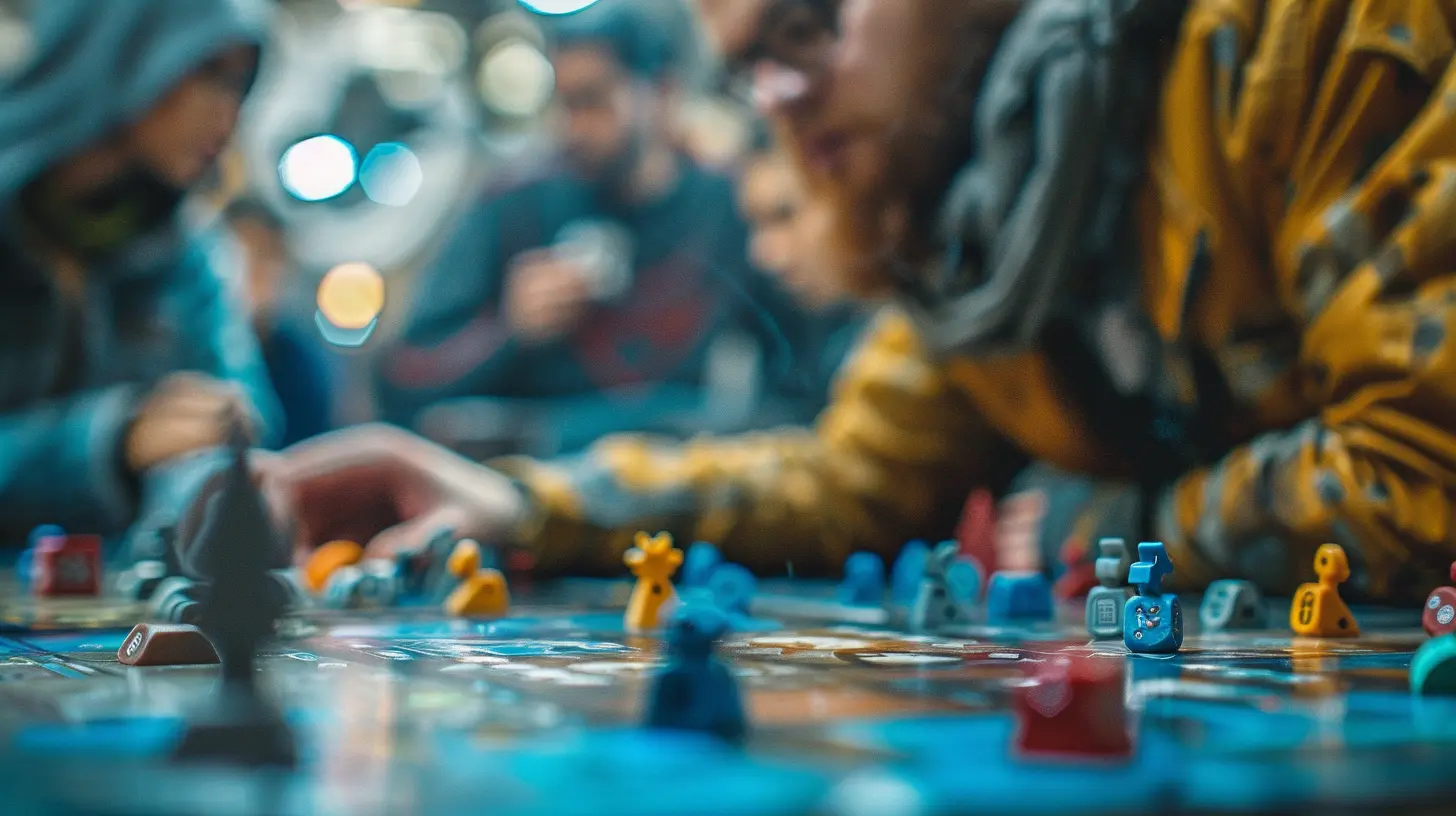
Inclusivity: A Seat at the Table for Everyone
One of the most beautiful things about tabletop gaming communities is how inclusive they can be. Traditionally, gaming was seen as a niche hobby for a specific type of person (you know the stereotype—socially awkward nerds in someone’s dimly lit basement). But times have changed, and gaming has become far more diverse and welcoming.These days, you’ll find people from all demographics, backgrounds, and identities at gaming tables. Many communities actively work to ensure that everyone feels welcome, whether it’s by incorporating inclusive rules, hosting events specifically for marginalized groups, or just being open-minded and kind. Some groups even go the extra mile to adapt games for players with disabilities. It’s proof that, no matter who you are, there’s a seat at the table waiting for you.
Think about it: When you sit down to play a game, all that really matters is the game itself. Nobody cares about your job title, the car you drive, or your Instagram following. What matters is whether you’re ready to roll the dice (and whether you remembered to bring snacks).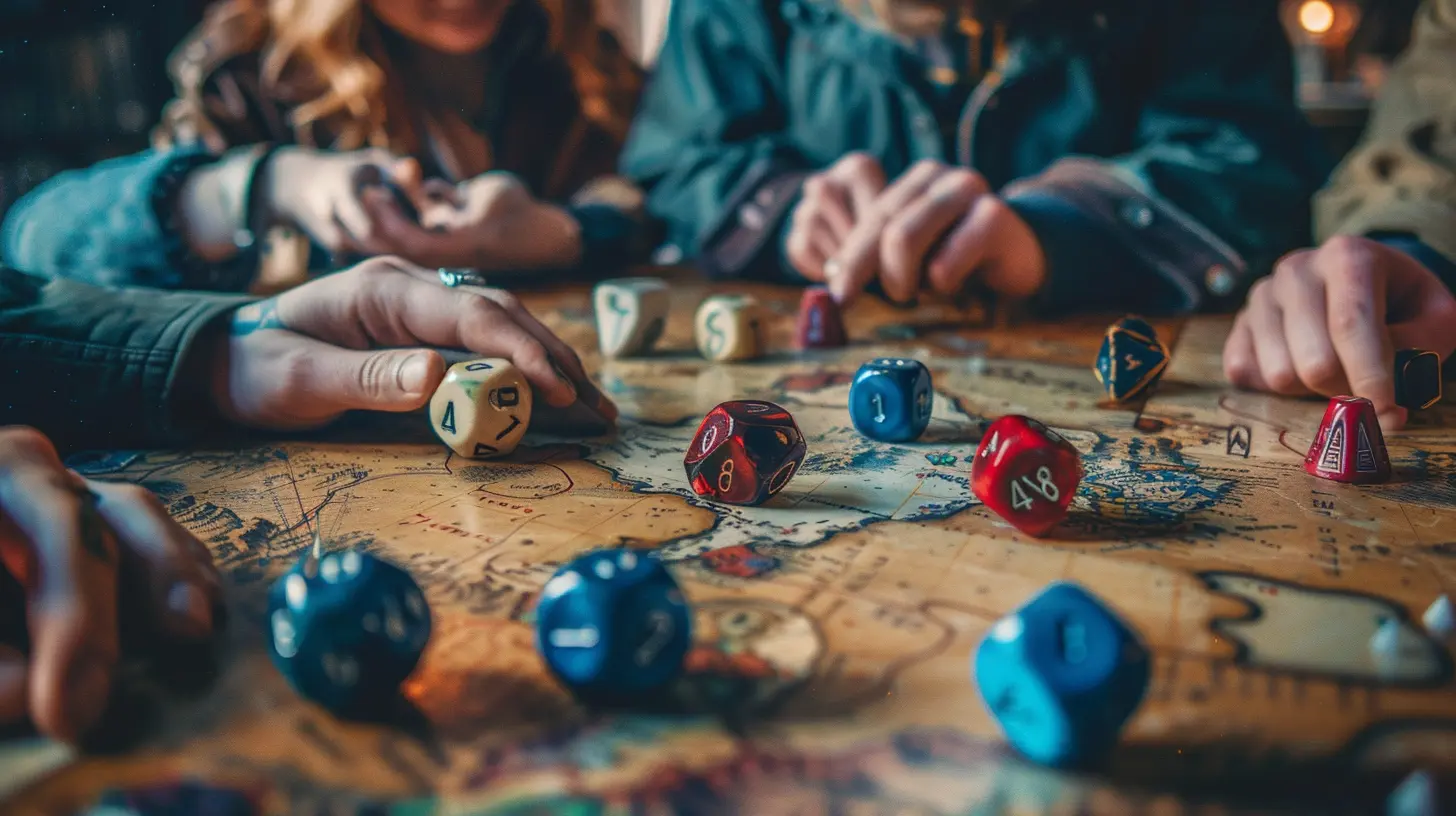
Safe Spaces for Self-Expression
Let’s face it: life isn’t always a walk in the park. For a lot of people, tabletop gaming offers an escape—a safe space where they can be themselves or even someone completely different. Want to play a chaotic rogue who does whatever they want? Go for it. Want to explore parts of your identity in a supportive and imaginative environment? The table is yours.Role-playing games (RPGs) in particular, like Dungeons & Dragons or Pathfinder, are amazing for this. They allow players to step into someone else’s shoes, make decisions they might not make in real life, and even process emotions or life experiences in a low-stakes way. It’s like therapy... but with dragons.
Even beyond RPGs, tabletop games encourage creativity and collaboration. Building strategies, creating long-term campaigns, or even just designing your deck of cards can be incredibly rewarding. Plus, the positive reinforcement and encouragement from fellow gamers can do wonders for a person’s confidence.
Bridging Generational and Cultural Gaps
Have you ever played a game of Catan with your parents? How about a round of Uno with your kids? Tabletop games have this magical ability to bridge the gaps between generations. It doesn’t matter how old you are or how “cool” you think you are—when you’re trying to build the longest road in Catan or avoid drawing that dreaded Wild Draw Four card, everyone is on the same playing field.It’s not just generational divides that gaming helps to close. In a world where cultural differences can sometimes feel like barriers, tabletop games provide a universal language. Whether it’s a strategy game, a co-op adventure, or a simple party game, the need to communicate and work together transcends language and cultural barriers. It’s teamwork in its purest form, and it’s beautiful to witness.
Promoting Mental Health and Well-Being
We’ve all heard about the negative effects of too much screen time or the isolation that comes with living in a hyper-connected yet oddly disconnected world. Tabletop gaming communities offer an antidote to that. They provide an opportunity to unplug, focus on the present, and engage with others in a meaningful way.Studies have shown that playing games can relieve stress, improve cognitive function, and boost mood. But beyond the scientific benefits, it’s the community aspect that often has the most profound impact. Having a regular gaming group means having people who care about you, share your interests, and look forward to spending time with you. For some, that sense of belonging can be life-changing.
Gaming as a Tool for Social Change
Tabletop gaming isn’t just improving lives on an individual level—it’s sparking broader social change. Many gaming communities are deeply committed to giving back, whether it’s through charity events, fundraising tournaments, or simply supporting local game stores.Beyond the tangible contributions, these communities are fostering empathy, collaboration, and critical thinking—skills that extend far beyond the gaming table. When people come together to game, they’re not just playing; they’re learning how to work together, respect each other’s differences, and resolve conflicts in creative ways. It’s a small but powerful push toward a more compassionate and cooperative world.
Final Thoughts: Why Tabletop Gaming Communities Matter
At the end of the day, tabletop gaming communities are about so much more than the games themselves. They’re about the people—the connections we make, the lessons we learn, and the ways we grow. Whether you’re a seasoned player or someone who hasn’t rolled a die in years, consider finding a local group or dusting off that old board game. You might be surprised at how much it enriches your life.Gaming is fun, sure. But when a simple roll of the dice can bring people together, create safe spaces, and even inspire positive change, it becomes something truly extraordinary. So, the next time someone invites you to sit down for a game, say yes. Who knows? That one game night might just change your life.
all images in this post were generated using AI tools
Category:
Tabletop GamesAuthor:

Lana Johnson
Discussion
rate this article
4 comments
Jinx Morgan
Tabletop gaming: where dice roll friendships and dragons spark deep conversations!" 🎲✨
May 19, 2025 at 3:40 AM

Lana Johnson
Absolutely! Tabletop gaming fosters connections and meaningful discussions, highlighting the power of shared experiences in building community. 🎲✨
Nym Frank
Tabletop gaming: a labyrinth of connections and narratives—what hidden truths lie within these vibrant communities?
May 11, 2025 at 3:07 AM

Lana Johnson
Tabletop gaming fosters deep social bonds and creativity, revealing insights into collaboration, empathy, and shared storytelling that strengthen community ties.
Farrah Lynch
This article offers insightful perspectives on how tabletop gaming fosters community and social connections. Great read for enthusiasts and newcomers alike!
May 9, 2025 at 4:02 AM

Lana Johnson
Thank you for your kind words! I'm glad you found the article insightful and relevant for both enthusiasts and newcomers. Happy gaming!
Dash Adkins
Great read! It's fascinating to see how tabletop gaming fosters community and connections. Your insights on the social impact are spot on—these games truly bring people together in meaningful ways.
May 5, 2025 at 3:13 AM

Lana Johnson
Thank you! I'm glad you enjoyed the article and found the insights valuable. Tabletop gaming truly is a unique way to build connections!
